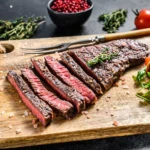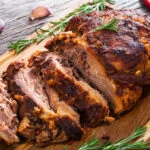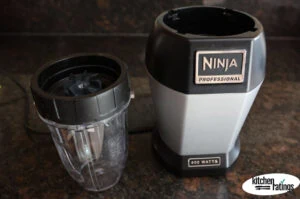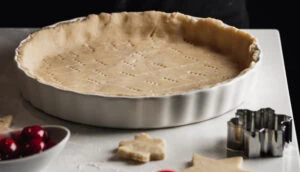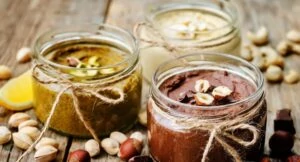Not all juicers are the same. There are masticating juicers and centrifugal juicers, and they both work in two entirely different ways. Today, we’re going to discuss the differences between masticating vs centrifugal juicers so that you can decide which juicer is best for you.
Both masticating juicers and centrifugal juicers are great for home juicing. If you’re thinking about juicing, you will choose between a masticating juicer and a centrifugal juicer. Both juicers work by extracting juice from the pulp of fruits and vegetables; they do this in two very different ways.
What Is a Masticating Juicer?
We’ll start with a masticating juicer first.
A masticating juicer is also known as a cold press juicer, a slow juicer, or an auger juicer because it crushes fruits and vegetables very slowly using little energy and heat. When fruits and vegetables are placed in the chute of the juicer, the auger slowly crushes the produce and extracts the juice. Masticating juicers often only have one speed, whereas centrifugal juicers can have more than one juicer speed.
A masticating juicer often produces very dry pulp because of the slow speed it uses to juice the fibers. Because of this, you often get juice that doesn’t lose as many vitamins and minerals as centrifugal juicers.
Another benefit of masticating juicers is that they produce juice with minimal oxidation. When you cut open an apple and start to turn brown, this is oxidation. It occurs when the cut fruit or vegetable comes into contact with oxygen, which happens with juicing.
Oxidation causes fruits and vegetables to lose flavor and start to spoil. The less oxidation occurs when juicing, the longer your juice will last and the better it will taste.
A masticating juicer is best if you plan to juice many soft fruits and vegetables. This is also true for leafy greens, including celery, kale, and spinach.
The downside to masticating juicers is that they don’t have a large chute for accommodating whole fruits and vegetables. Any fruit or vegetable you use in the masticating juicer will need to be cut into smaller pieces to fit in the juicer’s chute.
Masticating juicers also take longer to juice, which is how they get their name of slow juicer. If you are in a hurry, a masticating juicer may not be your best option.
What Is a Centrifugal Juicer?
A centrifugal juicer is a fast juicer, and it works by taking fruits and vegetables and chopping them up using a spinning blade to turn the produce into pulp. The pulp spins, and juice is extracted from the pulp, leaving behind the dry pulp.
Centrifugal juicers are the most popular residential juicers on the market because they’re efficient, affordable, versatile, and durable. You can juice both soft and hard fruits and vegetables with a centrifugal juicer, whereas a masticating juicer is best used for softer fruits and vegetables.
Unlike a masticating juicer, a centrifugal juicer has more than one speed for you to choose from. This allows you to choose the right speed setting for the type of fruit or vegetable you’re juicing. For example, there will be a slow speed setting for softer fruits and vegetables and a high-speed setting for harder fruits and vegetables.
If you’re in a hurry, a centrifugal juicer would be your best choice; however, you’ll need to drink the juice almost immediately after it’s produced because of how much higher the oxidation is when using a centrifugal juicer.
Oxidation is higher in centrifugal juicers because of the high revolutions per minute (RPM) that the juicer uses. This causes the juice to be foamier. Even when you have a juice pitcher with a built-in froth separator, the juice is still oxidized and must be consumed quickly.
Another reason you may want to choose a centrifugal juicer is if you’re new to juicing. Centrifugal juicers are easy to assemble and easy to use, and almost all parts are dishwasher-safe.
When to Choose a Masticating Juicer
You should choose a masticating juicer if you want to get the most out of your fresh juice. This includes the most fiber and pulp as well. Often with a masticating juicer, the slow juicing process can cause pulp and fiber to find their way into your juice.
While this makes your juice thicker, it also packs the most nutrients in your fresh juice as it contains more fibers than the juice from a centrifugal juicer. So, if you’re trying to get the most vitamins, minerals, and nutrients, you’ll want to choose the best masticating juicer.
You should also choose a masticating juicer if you’re not on a time crunch. If you can afford the extra minutes to sit with your juicer, you should choose a masticating juicer. The juice it produces will have more nutrients, producing less oxidized juice. Plus, less oxidized juice means you can save it for typically up to 72 hours, sealed, in the refrigerator.
So, if you don’t have the time to juice in the morning, don’t worry! You can juice the night before and seal the juice to drink the next morning, and it should still be fresh and full of nutrients and flavor.
A masticating juicer will need to have the fruits and vegetables chopped before they are placed in the juicer’s chute, so this will add time to your preparation as well. Just keep these tips in mind when you’re trying to decide if a masticating juicer is the best one for you.
If you’re trying to use the least amount of energy possible (and create the least amount of noise), you should choose a masticating juicer. They use significantly less amount of energy than centrifugal juicers, making them a budget-friendly and eco-friendly option.
When to Choose a Centrifugal Juicer
If you’re on the go and don’t have time to waste babysitting a juicer, then you should choose a centrifugal juicer, especially if you plan to drink your juice immediately after producing it.
There’s nothing wrong with centrifugal juicers, either. They’re easy to use and produce juice quickly. They can also juice whole fruits and vegetables without needing to be chopped. As long as the whole fruit or vegetable can fit into the chute, they can be juiced.
Just make sure that any fruit or vegetable that contains a pit, like a peach or an avocado, has had the pit removed before placing it into the juicer, as the pit can cause serious damage to your juicer and serious injury to you as well.
Another thing to think about that is often overlooked is countertop space. A centrifugal juicer typically takes up less countertop space than a masticating juicer. If countertop space is an issue, you may want to choose a centrifugal juicer over a masticating one.
FAQ
What type of juicer creates the least amount of waste?
Both centrifugal and masticating juicers create waste known as pulp. The pulp needs to be as dry as possible so that you know you’re getting the most juice from your fruits and vegetables.
Wet pulp means that not all of the juice was extracted from the fibers of the fruits and vegetables, which causes you to waste much of the produce that you put into the juicer.
A masticating juicer typically creates the driest pulp because of how slow the juice is extracted from the fruits and vegetables.
Which juicer is cheaper, a masticating juicer or a centrifugal juicer?
A centrifugal juicer is almost always cheaper than a masticating one. The motor that centrifugal juicers use is less expensive than the auger design used in masticating juicers. This causes centrifugal juicers to be less expensive and more affordable than masticating juicers.
Can I use a masticating juicer for anything else?
Yes. Some masticating juicers come with attachments that allow you to slice produce or grind meat. These attachments can be purchased separately and attached to your masticating juicer to give you three different applications in one.
Which juicer is best for juicing nuts?
To juice the milk from almonds, cashews, or other types of nuts, a masticating juicer is your choice. A centrifugal juicer will only pulverize the nuts, but a masticating juicer will be able to extract the milk from the nuts.
Conclusion
We hope this guide has helped you better understand the main differences between a masticating juicer vs centrifugal juicer. They are both highly effective juicers that create quality juice in very different ways.
For more information about juicing, check out our ultimate guide to juicing where we compare some of the best centrifugal juicers on the market. If you want more information about masticating juicers, you can see more information in our article that covers the best juicer for celery.

